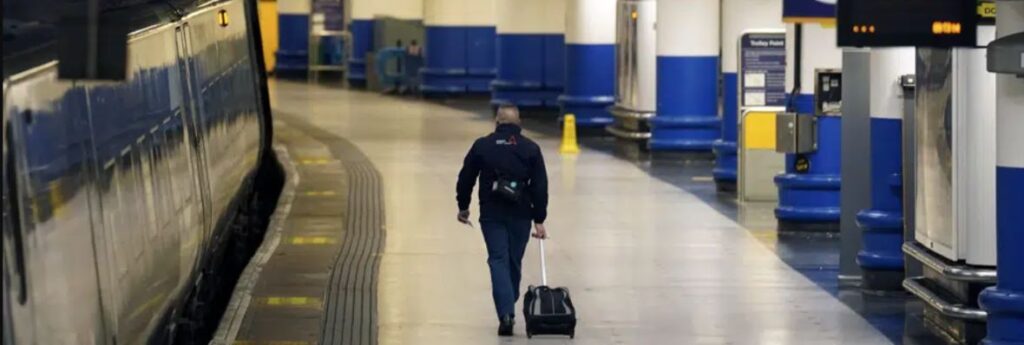British rail workers are staging a fresh round of strikes – the first of 2023 – that will disrupt services all week. Around half of the UK’s railway lines are closed, and only one-fifth of services are running amid a long-running dispute over pay and working conditions. Many places, including most of Scotland and Wales, have no train services.
The strike action will not directly affect the London Tube or overground networks, though minor delays and some limited disruption to service is anticipated.
Members of the Rail, Maritime and Transport union began action again on Tuesday, and will continue on Wednesday, Friday, and Saturday, while drivers in the Aslef union will strike Thursday.
Transport Secretary Mark Harper urged union leaders to come to the negotiating table and said the government has offered a “very fair pay offer.” But union boss Mick Lynch said officials have not put forward any fresh proposals and suggested the government was blocking an agreement.
Train companies and the government argue they need to change the way the rail network operates to control costs after the coronavirus pandemic reduced passenger traffic and changed commuting patterns. But rail workers, like others who work in the public sector, say wages have failed to keep pace with the skyrocketing cost of living.
Airport baggage handlers, nurses, ambulance and bus drivers and postal workers were among those who walked off their jobs in December to demand higher pay.

